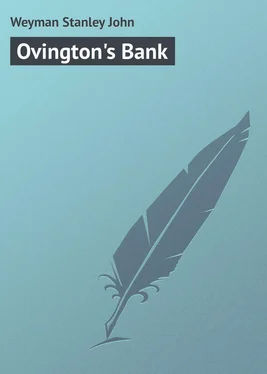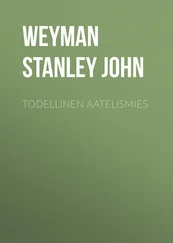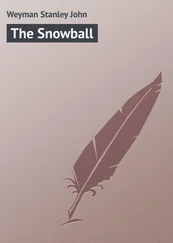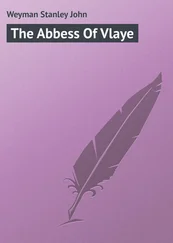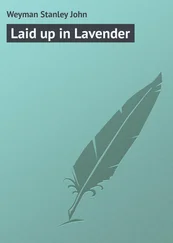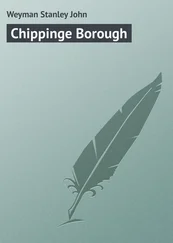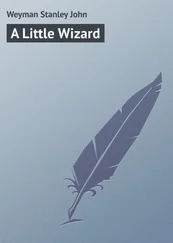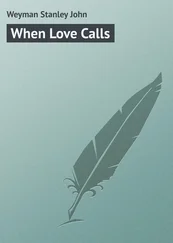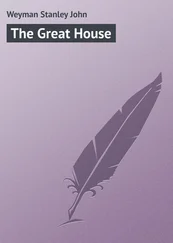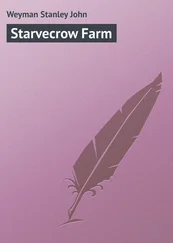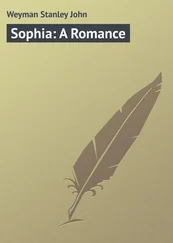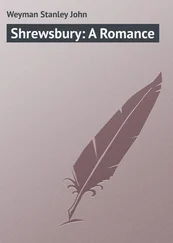Stanley Weyman - Ovington's Bank
Здесь есть возможность читать онлайн «Stanley Weyman - Ovington's Bank» — ознакомительный отрывок электронной книги совершенно бесплатно, а после прочтения отрывка купить полную версию. В некоторых случаях можно слушать аудио, скачать через торрент в формате fb2 и присутствует краткое содержание. Издательство: Иностранный паблик, Жанр: foreign_language, foreign_prose, на английском языке. Описание произведения, (предисловие) а так же отзывы посетителей доступны на портале библиотеки ЛибКат.
- Название:Ovington's Bank
- Автор:
- Издательство:Иностранный паблик
- Жанр:
- Год:неизвестен
- ISBN:нет данных
- Рейтинг книги:5 / 5. Голосов: 1
-
Избранное:Добавить в избранное
- Отзывы:
-
Ваша оценка:
- 100
- 1
- 2
- 3
- 4
- 5
Ovington's Bank: краткое содержание, описание и аннотация
Предлагаем к чтению аннотацию, описание, краткое содержание или предисловие (зависит от того, что написал сам автор книги «Ovington's Bank»). Если вы не нашли необходимую информацию о книге — напишите в комментариях, мы постараемся отыскать её.
Ovington's Bank — читать онлайн ознакомительный отрывок
Ниже представлен текст книги, разбитый по страницам. Система сохранения места последней прочитанной страницы, позволяет с удобством читать онлайн бесплатно книгу «Ovington's Bank», без необходимости каждый раз заново искать на чём Вы остановились. Поставьте закладку, и сможете в любой момент перейти на страницу, на которой закончили чтение.
Интервал:
Закладка:
"I could take a farm," sullenly, "and I shouldn't idle. I can work hard enough when I like my work. And I know something about farming, and I believe I could make it pay."
The other gasped. To the banker, with his mind on thousands, with his plans and hopes for the future, with his golden visions of Lombard Street and financial sway, to talk of a farm and of making it pay! It seemed-it seemed worse than lunacy. His son must be out of his mind. He stared at him, honestly wondering. "A farm!" he ejaculated at last. "And make it pay? Go back to the clodhopping life your grandfather lived before you and from which I lifted you? Peddle with pennies and sell ducks and chickens in the market? Why-why, I don't know what to say to you?"
"I like an outdoor life," Clement pleaded, his face scarlet.
"Like a-like a-" Ovington could find no word to express his feelings and with an effort he swallowed them down. "Look here, Clement," he said more mildly; "what's come to you? What is it that is amiss with you? Whatever it is you must straighten it out, boy; there must be an end of this folly, for folly it is. Understand me, the day that you go out of the bank you go to stand on your own legs, without help from me. If you are prepared to do that?"
"I don't say that I could-at first."
"Then while I keep you I shall certainly do it on my own terms. So, if you please, I will hear no more of this. Go back to your desk, go back to your desk, sir, and do your duty. I sent you to Cambridge at Butler's suggestion, but I begin to fear that it was the biggest mistake of my life. I declare I never heard such nonsense except from a man in love. I suppose you are not in love, eh?"
"No!" Clement cried angrily, and he went out.
For he could not own to his father that he was in love; in love with the brown earth, the woods, and the wide straggling hedge-rows, with the whispering wind and the music of the river on the shallows, with the silence and immensity of night. Had he done so, he would have spoken a language which his father did not and could not understand. And if he had gone a step farther and told him that he felt drawn to those who plodded up and down the wide stubbles, who cut and bound the thick hedge-rows, who wrought hand in hand with Nature day in and day out, whose lives were spent in an unending struggle with the soil until at last they sank and mingled with it-if he had told him that he felt his kinship with those humble folk who had gone before him, he would only have mystified him, only have angered him the more.
Yet so it was. And he could not change himself.
He went slowly to his supper and to Betty, owning defeat; acknowledging his father's strength of purpose, acknowledging his father's right, yet vexed at his own impotence. Life pulsed strongly within him. He longed to do something. He longed to battle, the wind in his teeth and the rain in his face, with some toil, some labor that would try his strength and task his muscles, and send him home at sunset weary and satisfied. Instead he saw before him an endless succession of days spent with his head in a ledger and his heels on the bar of his stool, while the sun shone in at the windows of the bank and the flies buzzed sleepily about him; days arid and tedious, shared with no companion more interesting than Rodd, who, excellent fellow, was not amusing, or more congenial than Bourdillon, who patronized him when he was not using him. And in future he would have to be more punctual, more regular, more assiduous! It was a dreary prospect.
He ate his supper in morose silence until Betty, who had been quick to read the upshot of the interview in his face, came behind him and ruffled his hair. "Good boy!" she whispered, leaning over him. "His days shall be long in the land!"
"I wish to heaven," he answered, "they were in the land! I am sure they will be long enough in the bank!" But after that he recovered his temper.
CHAPTER IV
In remote hamlets a few churches still recall the fashion of Garthmyle. It was a wide church of two aisles having clear windows, through which a flood of cold light fell on the whitewashed walls, and on the maze of square pews, some colored drab, some a pale blue, through which narrow alleys, ending in culs-de-sac, wound at random. The Griffin memorials, though the earliest were of Tudor date, were small and mean, and the one warm scrap of color in the church was furnished by the faded red curtain which ran on iron rods round the Squire's pew and protected his head from draughts. That curtain was watched with alarm by many, for at a certain point in the service it was the Squire's wont to draw it aside, and to stand for a time with his back to the east while his hard eyes roved over the congregation. Woe to the absentees! His scrutiny completed, with a grunt which carried terror to the hearts of their families, he would draw the curtain, turn about again, and compose himself to sleep.
In its severity and bleakness the church fairly matched the man, who, old and gaunt and grey, was its central figure; who, like it, embodied, meagrely and plainly as he dressed, the greatness of old associations, and like it, if in a hard and forbidding way, owned and exacted an unchanging standard of duty.
For he was the Squire. Whatever might be done elsewhere, nothing was done in that parish without him. The parson, aged and apathetic, knew better than to cross his will-had he not to get in his tithes? The farmers were his tenants, the overseers rested in the hollow of his hand. Hardly a man was hired and no man was relieved, no old wife sent back to her distant settlement, no lad apprenticed, but as he pleased. He was the Squire.
On Sundays the tenants waited in the churchyard until he arrived, and it was this which deceived Arthur when, Mrs. Bourdillon feeling unequal to the service, he reached the church next morning. He found the porch empty, and concluding that his uncle had entered, he made his way to the Cottage pew, which was abreast of the great man's. But in the act of sitting down he saw, glancing round the red curtain, that Josina was alone. It struck him then that it would be pleasant to sit beside her and entertain himself with her conscious face, and he crossed over and let himself into the Squire's pew. He had the satisfaction of seeing the blood mount swiftly to her cheeks, but the next moment he found the old man-who had that morning sent word that he would be late-at his elbow, in the act of entering behind him.
It was too late to retreat, and with a face as hot as Josina's he stumbled over the straw-covered footstool and sat down on her other hand. He knew that the Squire would resent his presence after what had happened, and when he stood up his ears were tingling. But he soon recovered himself. He saw the comic side of the situation, and long before the sermon was over, he found himself sufficiently at ease to enjoy some of the agréments which he had foreseen.
Carved roughly with a penknife on the front of the pew was a heart surmounting two clasped hands. Below each hand were initials-his own and Josina's; and he never let the girl forget the August afternoon, three years before, when he had induced her to do her share. She had refused many times; then, like Eve in the garden, she had succumbed on a drowsy afternoon when they had had the pew to themselves and the drone of the preacher's voice had barely risen above the hum of the bees. She had been little more than a child at the time, and ever since that day the apple had been to her both sweet and bitter. For she was not a child now, and, a woman, she rebelled against Arthur's power to bring the blood to her cheeks and to play-with looks rather than words, for of these he was chary-upon feelings which she could not mask.
Of late resentment had been more and more gaining the upper hand with her. But to-day she forgave. She feared that which might pass between him and his uncle at the close of the service, and she had not the heart to be angry. However, when the dreaded moment came she was pleasantly disappointed. When they reached the porch, "Take my seat, take my meat," the Squire said grimly. "Are you coming up?"
Читать дальшеИнтервал:
Закладка:
Похожие книги на «Ovington's Bank»
Представляем Вашему вниманию похожие книги на «Ovington's Bank» списком для выбора. Мы отобрали схожую по названию и смыслу литературу в надежде предоставить читателям больше вариантов отыскать новые, интересные, ещё непрочитанные произведения.
Обсуждение, отзывы о книге «Ovington's Bank» и просто собственные мнения читателей. Оставьте ваши комментарии, напишите, что Вы думаете о произведении, его смысле или главных героях. Укажите что конкретно понравилось, а что нет, и почему Вы так считаете.
